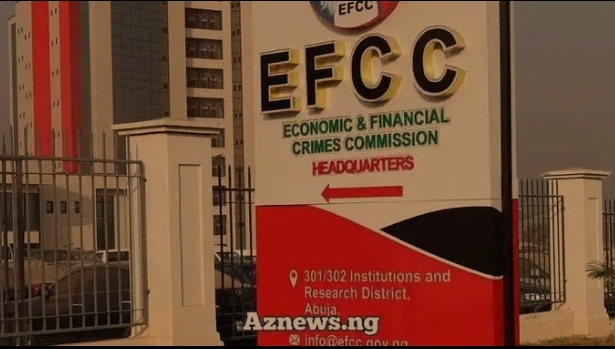In a startling revelation, the Economic and Financial Crimes Commission (EFCC) has disclosed that a staggering 58 former governors are implicated in the misappropriation, embezzlement, or laundering of approximately N2.187 trillion over a period of 25 years.
This astronomical sum excludes assets seized globally or currently under investigation, which amount to billions of Naira.
The EFCC’s investigation has shed light on the extensive scale of corruption within Nigeria’s political landscape.
With a total loot of N2.2 trillion, equivalent to the combined budgets of Lagos State and the South-East states for 2024, this scandal surpasses the budgets of the North-Central and North-East states for the same year by several billion Naira.
Currently, the EFCC is actively probing and prosecuting 58 ex-governors hailing from diverse regions across the country. Since the onset of civilian rule on May 29, 1999, Nigeria has seen the tenure of at least 170 governors across its 36 states.
Among the ex-governors facing or previously faced investigations by the EFCC, notable figures and their alleged misappropriated amounts include:
Late Abubakar Audu (N10.966 billion)
TA Orji and sons (N551 billion)
Yahaya Bello (N80.2 billion)
Chimaroke Nnamani (N5.3 billion)
Sullivan Chime (N450 million)
Kayode Fayemi (N4 billion)
Ayo Fayose (N6.9 billion)
Abdullahi Adamu (N15 billion)
Danjuma Goje (N5 billion)
Aliyu Wamakko (N15 billion)
Sule Lamido (N1.35 billion)
Joshua Dariye (N1.16 billion)
Timipre Sylva (N19.2 billion)
Saminu Turaki (N36 billion)
Orji Uzor Kalu (N7.6 billion)
Bello Matawalle (N70 billion)
Lucky Igbinedion (N4.5 billion)
Musa Kwakwanso (N10 billion)
Peter Odili (N1000 billion)
Jolly Nyame (N1.64 billion)
James Ngilari (N167 million)
Abdulaziz Yari (N84 billion)
Godswill Akpabio (N100 billion)
Abdul Fatah Ahmed (N9 billion)
Ali Modu-Sheriff (N300 billion)
Willie Obiano (N43 billion)
Ibrahim Dankwambo (N1.3 billion)
Darius Ishaku (N39 billion)
Ramalan Yero (N700 million)
Achike Udenwa (N350 million)
Rochas Okoroha (N10.8 billion)
James Ibori (N40 billion)
DSP Alamieyeseigha (N2.655 billion)
Gabriel Suswam (N3.111 billion)
Samuel Orton (N107 billion)
Murtala Nyako (N29 billion)
Rashid Ladoja (N4.7 billion)
Christopher Alao-Akala (N11.5 billion)
Abdulkadir Kure (N600 million)
Babangida Aliyu (N4 billion)
Abubakar Audu (N10 billion)
Idris Wada (N500 million)
Ibrahim Shekarau (N950 million)
Adamu Aliero (N10 billion)
Usman Dakingari and wife (N5.8 billion)
Attahiru Bafarawa (N19.6 billion)
Jonah Jang (N6.3 billion)
Aliyu Doma (N8 billion)
Tanko Al’Makura (N4 billion)
Boni Haruna (N93 billion)
Bindow Jibrila (N62 billion)
Adamu Muazu (N13 billion)
Isa Yuguda (N212 billion)
Mohammed Abubakar (N8.5 billion).
The staggering magnitude of corruption unearthed by the EFCC underscores the urgent need for comprehensive reforms and stringent measures to combat graft and ensure transparency and accountability in Nigeria’s governance system.











